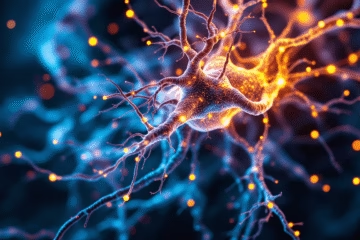In recent years, meditation has emerged as a practice that not only promotes emotional well-being but also transforms the structure and function of the brain. As science advances, we begin to better understand how meditation can impact our lives in profound and lasting ways. In this article, we will explore the science of meditation, its proven benefits, how to start meditating, and the transformative journey that this practice can provide.
What is Meditation?
Meditation is a practice that involves focusing the mind, usually through mindfulness or concentration on an object, sound, or breath. The origins of meditation date back to ancient spiritual traditions, but today it is widely recognized as a powerful tool for mental and emotional health. As Jon Kabat-Zinn said,
“Meditation is a way to connect with the present moment, allowing life to unfold without the interference of our thoughts and worries.”
There are several forms of meditation, including:
– Mindfulness Meditation: Focuses on being present and accepting the moment without judgment.
– Transcendental Meditation: Involves the repetition of a mantra to achieve a deep state of relaxation.
– Zen Meditation: A practice that emphasizes breath observation and seated posture.
– Guided Meditation: Where an instructor leads the practice, often using visualizations.
Each of these approaches offers unique benefits, and the choice of practice may depend on personal preferences and individual goals.
Step into the world of learning and personal growth with the Centre of Excellence!
Proven Benefits:
Scientific studies have demonstrated that meditation can lead to a variety of benefits, including:
– Stress Reduction: Regular meditation practice can lower cortisol levels, the stress hormone. As Pema Chödrön states,
“Meditation helps us see our lives as they are, not as we would like them to be.”
Reducing stress can result in better physical and mental health, contributing to a more balanced life.
– Increased Attention and Concentration: Research shows that meditation can improve focus and attention. According to Richard Davidson,
“Meditation not only improves attention but can also change how the brain responds to stress.”
A study published in the journal Cognitive, Affective, & Behavioral Neuroscience revealed that mindfulness meditation can enhance sustained attention, allowing individuals to concentrate on tasks for longer periods.
– Improved Emotional Health: Meditation is associated with a reduction in symptoms of anxiety and depression. Sharon Salzberg observes,
“The practice of meditation teaches us to cultivate compassion, both for ourselves and for others.”
Studies indicate that meditation can increase activity in brain areas associated with emotional regulation, resulting in greater resilience and well-being.
– Structural Changes in the Brain: Neuroimaging studies have shown that meditation can increase gray matter density in brain areas related to memory, empathy, and emotional regulation. As Jack Kornfield states,
“Meditation is a path to inner transformation that can be measured in physical changes in the brain.”
A study conducted by researchers at Harvard University showed that just eight weeks of mindfulness meditation practice can lead to changes in brain structure, including an increase in the thickness of the cerebral cortex.
– Strengthening the Immune System: Meditation may also have a positive impact on physical health. Research indicates that regular meditation practice can strengthen the immune system, helping the body fight off illnesses. A study published in Psychosomatic Medicine found that individuals who practiced meditation regularly exhibited a more robust immune response to vaccines.
Step into the world of learning and personal growth with the Centre of Excellence!
How to Start Meditating?
Starting a meditation practice doesn’t have to be intimidating. Here are some practical tips to get started:
1. Find a Quiet Space: Choose a location where you feel comfortable and free from distractions. It can be a corner of your home, a park, or anywhere that conveys calmness.
2. Set a Time: Start with just five to ten minutes a day. As you become more comfortable, you can increase the duration. The important thing is to be consistent. As Thich Nhat Hanh says,
“Meditation is not a task to be accomplished, but a practice to be cultivated.”
3. Focus on Your Breath: Close your eyes and bring your attention to your breath. Feel the air entering and leaving your body. When your mind wanders, gently bring your focus back to your breath. This practice of redirecting attention is key to developing the ability to be present.
4. Be Kind to Yourself: Meditation is a practice, and there is no “right” way to do it. Accept the thoughts that arise and allow yourself to return to the present moment. Self-compassion is an essential part of meditation. As Pema Chödrön says,
“The practice of meditation is an invitation to become friends with ourselves.”
5. Experiment with Different Techniques: Don’t hesitate to explore different styles of meditation. You might try guided meditation, movement meditation (like Tai Chi), or even group meditation. Each approach can offer a new perspective and enrich your practice.
6. Use Available Resources: There are many apps and online videos that offer guidance for beginners. Apps like Headspace, Calm, and Insight Timer can be great starting points.
Meditation Teacher Diploma Course
Embark on a journey of self-discovery and personal growth with the Meditation Teacher Diploma Course by the Centre of Excellence. Our experienced instructors will guide you through comprehensive modules designed to deepen your practice and teaching skills.
The Journey of Meditation
Meditation is a personal journey that can lead to greater self-understanding and awareness of the world around you. As you commit to this practice, you may discover new ways to cope with life’s challenges and cultivate a sense of inner peace.
The practice of meditation is not just about finding moments of tranquility; it is also about developing a new perspective on life. In a world that often seems chaotic and unpredictable, meditation offers a refuge. It invites us to slow down, observe, and connect with the essence of what it means to be human. As Tara Brach says,
“Meditation is a gift we give ourselves, an opportunity to reconnect with our true nature.”
Common Challenges in Meditation Practice:
While meditation offers many benefits, beginners may face challenges along the way. Here are some common challenges and suggestions on how to overcome them:
– Restless Mind: It is normal for the mind to wander during meditation. Instead of getting frustrated, acknowledge these thoughts and gently redirect your attention to your breath. Over time, you will become more skilled at maintaining focus.
– Unrealistic Expectations: Many people expect immediate results from meditation. Remember that meditation is a practice that requires time and patience. As Jack Kornfield says,
“Meditation is a path, not a destination.”
– Difficulty Finding Time: Life can be busy, and finding time to meditate can be challenging. Try to incorporate meditation into your daily routine, such as upon waking or before sleeping. Even a few minutes can make a significant difference.
– Skepticism: Some people may be skeptical about the benefits of meditation. It is important to approach the practice with an open mind and be willing to experiment. Science is beginning to validate many of the benefits that meditation practitioners have reported over the years.
Meditation is Powerful
Meditation is a powerful practice that can transform not only the mind but also the heart. By exploring this practice, we not only transform our minds but also our hearts. Science continues to reveal the benefits of meditation, showing that it can be an effective tool for improving mental, emotional, and physical health.
Whether you are a beginner or someone who has been practicing for a while, meditation offers a path to self-discovery and inner peace. By dedicating time to this practice, you may find a new way of living more aware and present.
As Richard Davidson observes,
“Meditation is a way to cultivate happiness and resilience in our lives.”
By embarking on this journey, you may find not only a refuge in times of stress but also a source of joy and connection with the world around you.
Frequently Asked Questions:
What is meditation and what are its different types?
Meditation is a practice that involves focusing the mind through mindfulness or concentration on an object, sound, or breath. Its different types include Mindfulness Meditation, Transcendental Meditation, Zen Meditation, and Guided Meditation, each offering unique benefits.
What are the proven benefits of meditation according to scientific studies?
Scientific studies show that meditation can reduce stress, improve attention and concentration, enhance emotional health, cause structural changes in the brain, strengthen the immune system, and promote overall well-being.
How can I start meditating as a beginner?
Begin by finding a quiet space, setting a regular time for 5-10 minutes daily, focusing on your breath, being kind to yourself, experimenting with different techniques, and utilizing available resources like meditation apps.
What are common challenges faced by beginners in meditation, and how can they be overcome?
Common challenges include a restless mind, unrealistic expectations, difficulty finding time, and skepticism. Overcome these by acknowledging wandering thoughts, practicing patience, integrating meditation into daily routines, and approaching the practice with an open mind.
Why is meditation considered a powerful practice for personal transformation?
Meditation is powerful because it can transform the mind and heart, improve mental, emotional, and physical health, and foster self-discovery, inner peace, happiness, and resilience, leading to a more present and aware way of living.
Body, Mind, And Soul For A Fulfilled Life!





